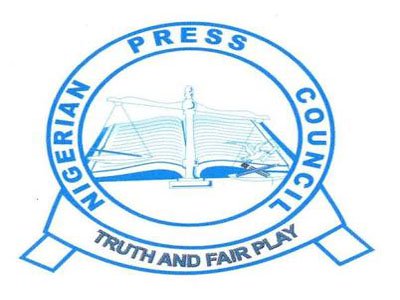The Nigerian Press Organisation has rejected the Nigerian Press Council Bill 2018, describing it as unconstitutional and irreparably bad.
The bill, which is at second reading stage at the Senate, seeks to empower the Nigerian Press Council on decisions relating to training institutions and professional qualifications that would be acceptable for journalism practice in Nigeria.
The NPO comprises the Newspaper Proprietors’ Association of Nigeria, Nigeria Guild of Editors, Nigerian Union of Journalists, Broadcasting Organisations of Nigeria and other media stakeholders.
A statement signed by NPAN President, Nduka Obaigbena; NGE President, Funke Egbemode; NUJ President, Waheed Odusile; BON Chairman, John Momoh; International Press Centre Director, Lanre Arogundade; Institute For Media and Society Executive Director, Dr. Akin Akingbulu; and Media Law Centre Director, Richard Akinnola, said the bill, if signed, would “adversely and illegally interfere in media operations in Nigeria”.
The NPO said the bill would also be subjudice because a case against it is pending at the Supreme Court.
The statement reads: “The bill is, for all intents and purposes, draconian and anti-press freedom being an amalgamation of the obnoxious Public Officers Protection Against False accusation Decree No. 4 of 1984 and the Newspapers Registration Decree 43 of 1993.
“The bill seeks to criminalise journalism practice despite the fact the laws of the country already have enough provisions and avenues for seeking legal redress.”
The NPO accused the bill’s promoters of attempting to extra-judicially “usurp the powers of the courts” through the bill.
It was also stated that the bill could incapacitate the media in the exercise of its constitutional duties and obligations to “monitor governance and hold government accountable to the people.”
According to the NPO, the bill violates Section 39 of the 1999 constitution (as amended) and Article 9 of the African Charter on Human and Peoples’ Rights (Ratification and Enforcement Act) No. 2 of 1983 which is now part of the country’s laws.
It added: “That the bill through some of its other obnoxious provisions seeks to indoctrinate Nigerians, through the use and misuse of curricula in training of journalists and usurp the powers of the regulatory bodies in the educational sector affecting media training, especially the National Universities Commission (NUC) and the National Board for Technical Education (NBTE).
“The bill seeks to create the impression that the Nigerian media community does not take the issues of ethics and self-regulation seriously whereas it is a well-known fact that the mechanisms actually exist including the Code of Conduct of Journalists in Nigeria, the Ethics Committees of the NUJ and NGE and the recently launched Nigerian Media Code of Election Coverage endorsed by media stakeholders.”
The stakeholders made three demands, which are that the bill should be dropped, the government should “guarantee press freedom” and “borrow from best practices in other jurisdictions”.
The NGE, in another statement resulting from the meeting of its Standing Committee, said it discussed the state of the nation and the media and took particular note of the Nigerian Press Council Act 1992 (Repeal and Enactment Bill 2018), which is currently before the Senate and has passed second reading.
The statement, signed by Egbemode and the NGE’s General Secretary, Victoria Ibanga, said: “The Nigerian Guild of Editors vehemently condemns the bill which seeks to criminalise journalists and journalism practice, takes away the power of the law courts and usurps the constitutional duties of academic institutions and regulatory agencies such as the National Universities Commission (NUC).
“The Guild observes that those behind this bill have been unrelenting in their quest to cage the media under different guises, as the bill has come up under different administrations since 1961. This bill bears the semblance of the obnoxious Decree 4 of 1984 and Decree 43 of 1988.
“The Guild is piqued that the Senate could bring such a bill to the fore in spite of a subsisting court case on the same subject without minding that it is subjudice.
“The Guild frowns at the attempt by the promoters of the bill to arrogate to the council the powers to decide which training institutions and professional qualifications attained there from, should be acceptable for journalism practice in Nigeria. This clearly abrogates the mandates of relevant accrediting bodies.
“The Guild wonders why the sponsors of this bill are fixated on muzzling the press using draconian laws which are clearly targeted at making the watchdog toothless. Sections 22 and 39 of the 1999 Constitution, as amended, are clear on the role of the media.
“The Guild perceives this bill as provocative, primitive, anti-people and anti-press freedom at a time when advocacy for free press is gaining stridency across the world.
“It is noteworthy that there is nothing in this bill that shows how the council intends to create an enabling environment for the media to thrive as it is the case in other sectors of the economy. This is particularly galling at a time the media industry is in dire straits.
“The sponsors of this bill are clearly undemocratic and appear to suffer illusion of grandeur. They seemed to be totally oblivious of the fact that the media houses are businesses set up with investments apart from being the fourth estate of the realm.
“The Guild condemns the bill in its entirety and will never nominate any of its members to serve in a council that seeks to cage the media, destroy the profession and criminalise journalists.
“Indeed, it is the opinion of the Guild that this bill should be consigned to the dustbin where it rightly belongs.”

